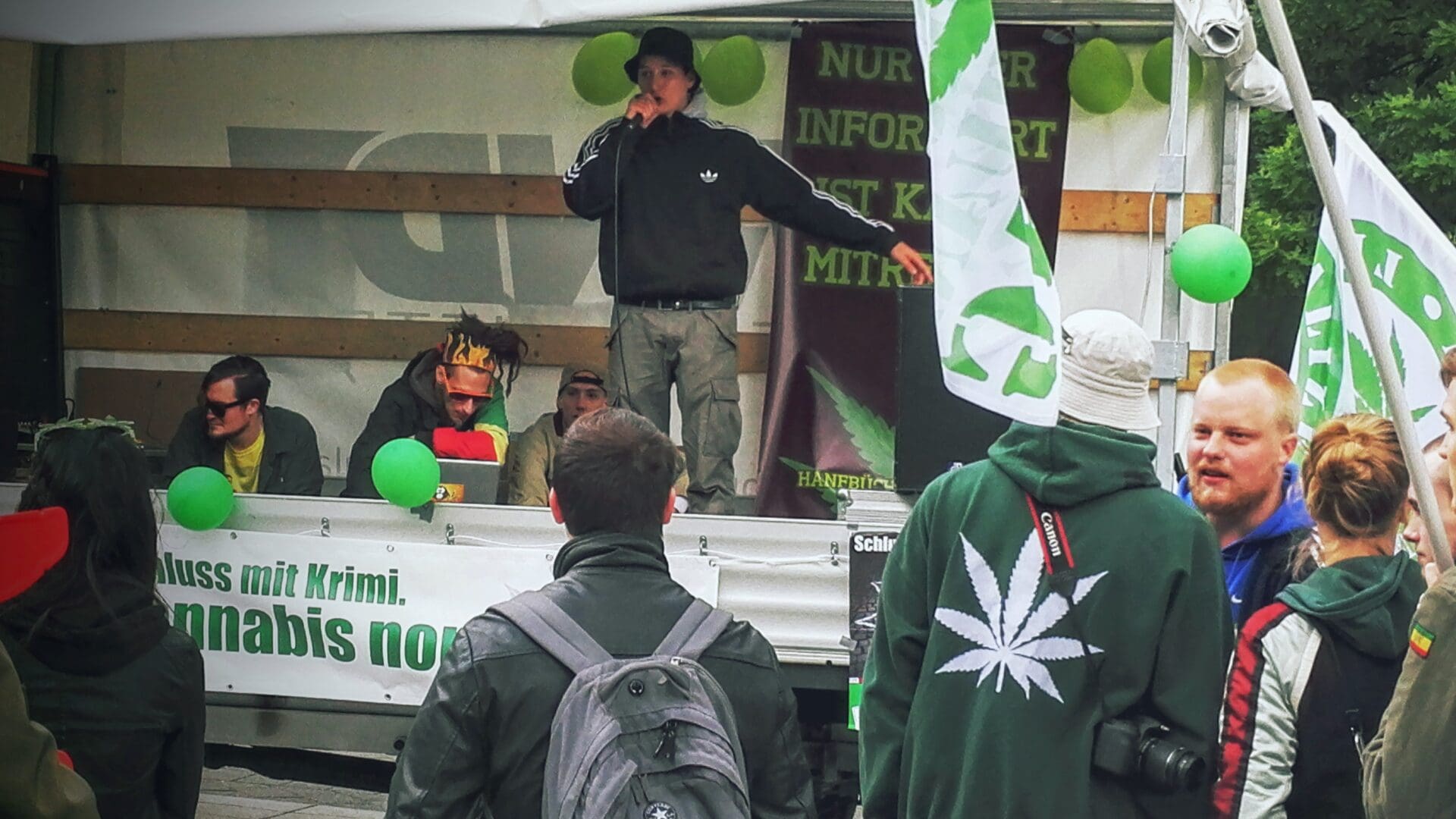The ruling Socialist-Green-liberal ‘spook government’ in Germany (whose three governing parties have governed so well that polls put them at 33 per cent overall) has taken another irreversible policy measure: decriminalizing the use and production of cannabis.
But what can be the philosophy behind such a decision? What is the ulterior motive of the Berlin administration, and why do we conservatives consider it harmful?
Cannabis possession and home cultivation have been decriminalized in Germany as of 1 April this year after the relevant bill passed the final debate in Berlin.
Adults over the age of 18 are now allowed to possess 25 grams of cannabis and grow up to three plants at home. From 1 July non-commercial ‘cannabis clubs’ can supply up to 500 members with a maximum monthly quantity of 50 grams per member.
‘The fight was worth it,’ wrote Health Minister Karl Lauterbach on X, formerly Twitter, after the decision, as quoted by POLITICO.
Well, I do not believe it was worth it. The very fact that such an unpopular, three-party coalition government, nearing the end of its term, is about to make a decision that will transform the health of Germans forever, is deplorable. Of course,
they have also followed the recent custom in Western democracies of not asking the people for their opinion. There was no referendum.
But this is only one aspect of the important process. The real question is why liberals and globalists ‘want’ us to do drugs and develop new addictions so badly. There are several reasons for this, in my opinion.
Money
This is perhaps the most obvious and understandable reason. The state wants to monopolize the drug trade, tax it, and generate revenue. In addition, the cost of law enforcement and judicial procedures will be greatly reduced by decriminalization. Money is not, of course, a morally justifiable argument in such a matter, and I think both conservatives and progressives would agree on that.
The Vision of the Liberal State
What does the liberal state think of itself and us, its citizens? About itself, mostly, that it is the alpha and omega, and about us, that we are individuals at its mercy. Naturally, we often do not think this way, so the state is driven to overreach and extend its tentacles into bedrooms, school desks and families, and everywhere it would reinforce our dependence on it. One of the easiest ways of doing this is to create a literal dependency, for example with drugs. Decriminalize and then legalize, reduce criminal cases, reduce law enforcement, make it easier for young people to get the drug, get hooked on it, and as a result, destroy families. Meanwhile, help for the addicts, the detox centres, the treatment, most related institutions are also overwhelmingly in the hands of the state. It is therefore in the interest of the liberal state, which wants to make itself as large as possible, to use drugs to break up the smallest social units, families, in which citizens can resist arbitrariness and enjoy their freedom. After all, who is the easier victim of arbitrariness? Is it an introverted, anti-social, uncommitted drug addict who no longer cares about his family? Or an open-minded, social, sober citizen who is involved with friends and communities?
Globalist Philanthropists and their Interest
International drug liberalization and the relativization and normalization of drug use in mainstream culture originated in the United States, and within it, in the more left-wing, liberal circles of the Democratic Party. It is no accident that one of the most liberal states, California, was the first to allow the ‘medical’ use of marijuana. Because yes, that’s where it all started. First, cannabis was licensed for medical use, then legalization became more widespread. It is the typical slippery slope. In fact, there are doors that, once opened, cannot be closed. Society-shaping (disruptive) philanthropists like George Soros, who have been at the forefront of making drug use easier for decades, know this all too well.
To quote The New York Times, these triumphs were made possible ‘almost single-handedly’ by Soros.
Millions of dollars were invested by him in ballot initiatives and other forms of organization. Soros kept donating millions of dollars a year to support the legalization of drugs on a larger scale. He backed groups like Drug Policy Action, the political campaign arm of the 501(c)(3) non-profit Drug Policy Alliance. These groups succeeded in getting medical marijuana legalized in 20 states before pushing for the legalization of marijuana products for recreational use. George Soros funded the reversal of drug prohibition with at least $80 million between 1994 and 2014; Joseph Califano of Columbia University’s National Center on Addiction and Substance Abuse dubbed him the ‘Daddy Warbucks of drug legalization’.
Crises and Social Challenges Weak Governments Cannot Address
Germany’s economy is stagnating, it looks set to be the loser of the economic transformation of the decade; war psychosis is engulfing society over Ukraine; German society is more divided than ever, with the two traditional establishment parties together at 45 per cent in the polls, and migration pressures unrelieved. The liberal government’s response to this chaos and disintegration is drug decriminalization (just as it happened in Ukraine). The logic here is presumably that if the people are anxious and unhappy with the government, ‘let’s drug them’, of course, but this might be an assumption made in bad faith…
There are certainly many other potential reasons, but I believe these are the most significant and most plausible. So now that we have looked at why the left is on the side of drug liberalization, let us address the other important question: why are we conservatives against it?
First, what is the essence of the conservative worldview? It is natural law as opposed to legal positivism; the recognition that life should not be individualistic, hedonistic, or nihilistic, but that there is a higher good than us. The world does not revolve around ‘me’, but around all of us.
It’s not just ‘me’: it’s the family, the nation, the planet, God, and countless communities in which each of us is responsible for others.
Therefore, we are taking responsibility for everyone else; in Biblical terms, for our neighbours. That is why a good Christian and conservative cannot pass by a drug addict without blinking an eye. To a liberal, this sight is merely an imprint of another individual’s individual choices; to a conservative, it is the manifestation of a social problem that must be prevented, those who cause it must be punished, and, together, ways to solve it must be identified.
Secondly, and this is the ‘core’ idea, addictions and not being self-conscious are wrong. This is our dogma. We believe this because we understand the teaching about temptation and because the experience of the past millennia dictates that sacrifice on the altar of harmful pleasures is leads to downfall. That is why there are ‘zombies’ on the streets of San Francisco and Philadelphia today, whereas there were none a hundred years ago. It is not the world that has changed, but our morals and values.
Strict conservative policies regarding drug use are often attacked with the argument that prevention is what matters, not punishment. Conservatives of course agree that prevention is important, but we believe that an important part of prevention is deterrence: making it clear that deviant behaviour has consequences. Prohibition is about making it evident that drug use is wrong and people should not engage in it. This is what we are doing in Hungary. There has been no drug liberalization and there will be none as long as there is a conservative government in place.








